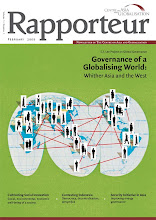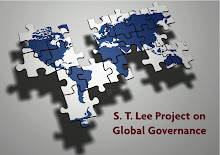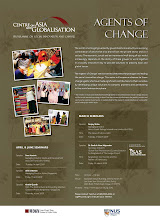.jpg)
Research Fellow Benjamin Sovacool has just returned from the land of sunshine, solar energy, and schnitzel. After presenting research at the Tenth Annual World Renewable Energy Congress in Glasgow, Scotland, Benjamin headed over to Germany to learn more about renewable energy and tour some solar panel manufacturing facilities.
Meetings with Enercon, the largest German manufacturer of wind turbines, the German Ministry of Environment (or Bundesministerium für Umwelt, Naturschutz und Reaktorsicherheit if you’re German), and the German Solar Industry Association confirmed that using feed-in tariffs—schemes that give renewable power providers guaranteed access to the electricity grid and then pay them a premium for their electricity—is the best way to accelerate the growth of renewable energy technologies.
Researchers at the Zentrum fur Sonnenenergie-und Wasserstoff-Forschung Baden-Wurrtemberg in Stuttgart, Germany, also noted that Singapore could itself rapidly become a world leader in solar panel manufacturing if they decided to take the lead in promoting renewables.
In Frieburg, Germany, a small town that has more installed solar power than the entire United Kingdom, researchers at the Fraunhofer-Institut für Solare Energiesysteme, a research laboratory, and Solar Fabrik-AG, a solar panel manufacturer, explained that cutting edge R&D continues to reduce the cost of solar energy and improve efficiency.
Finally, in Hamburg, Stefan Schurig and Bianca Barth from the World Future Council talked about what Singapore could do if it wanted to model the success Germany, Spain, and Denmark have had in developing renewables: craft a stable, strong, and consistent regulatory policy. [Ben]
Related article: "Renewable energy technologies: Just as reliable as fossil fuel plants", Ben Sovacool
Picture: Solar paneled building in Frieburg, Germany










No comments:
Post a Comment